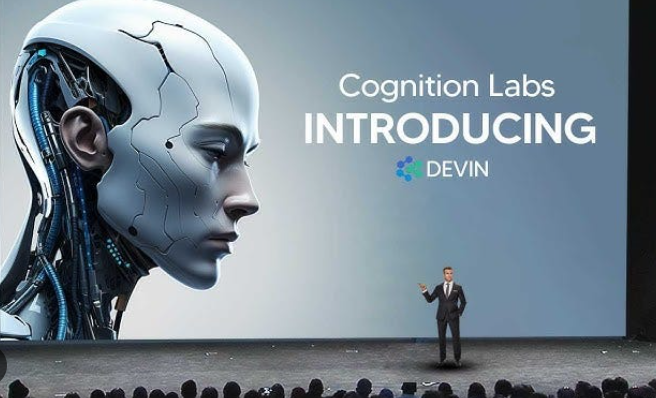The landscape of technology and innovation continues to evolve rapidly, and the latest groundbreaking development comes in the form of Devin, the world’s first autonomous AI software engineer. A recent article from The Indian Express delves into this revolutionary advancement, shedding light on the capabilities and implications of this cutting-edge creation.
Devin represents a significant leap forward in the field of artificial intelligence, with the ability to autonomously design, develop, and optimize software solutions without human intervention. Developed by a team of researchers at DeepMind, a leading AI research lab, Devin showcases the potential of machine learning and automation in software engineering.
The article provides insights into Devin’s underlying architecture and functionality, detailing how the system leverages advanced algorithms and neural networks to tackle complex programming tasks. By analyzing vast amounts of code and learning from past experiences, Devin can generate high-quality software solutions tailored to specific requirements and constraints.
One of the key highlights of Devin is its adaptability and ability to evolve over time. As it continues to interact with codebases and receive feedback from users, Devin’s performance and capabilities are expected to improve, paving the way for even more sophisticated AI-driven software development in the future.
Moreover, the article explores the potential impact of Devin on the field of software engineering and beyond. By automating repetitive tasks and streamlining the development process, Devin has the potential to accelerate innovation, reduce time-to-market, and lower barriers to entry for aspiring developers.
However, alongside the excitement surrounding Devin’s capabilities, there are also questions and concerns about its implications for the future of work and human involvement in software development. While Devin offers unprecedented efficiency and productivity gains, some experts caution against overreliance on AI and the potential displacement of human workers.
As the technology continues to mature, it will be essential to strike a balance between the benefits of automation and the need for human oversight and intervention. Ethical considerations, such as bias in algorithmic decision-making and the ethical implications of autonomous systems, must also be carefully addressed as AI technologies like Devin become more widespread.
In conclusion, the emergence of Devin marks a significant milestone in the ongoing advancement of artificial intelligence and automation. By showcasing the potential of autonomous AI software engineering, Devin opens up new possibilities for innovation and efficiency in software development.
However, with these opportunities come challenges and considerations that must be addressed thoughtfully. As Devin and similar technologies continue to evolve, it will be crucial to ensure that they are deployed responsibly, with careful consideration given to their societal and ethical implications.
Ultimately, Devin represents a glimpse into the future of software engineering, where humans and machines collaborate synergistically to drive progress and innovation in the digital age.










Leave a Reply